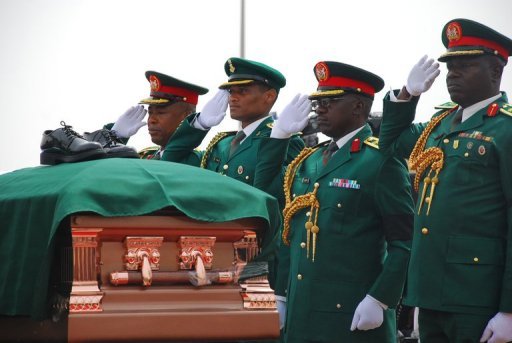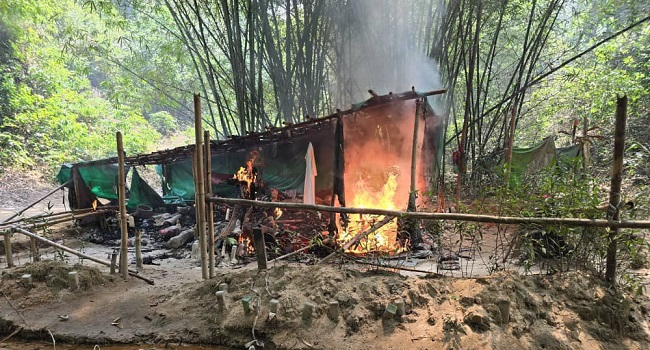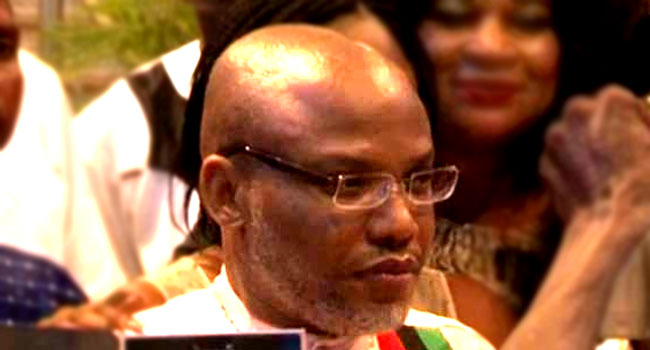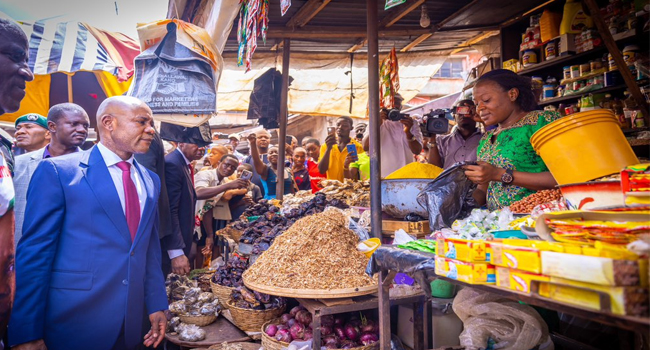
Forty-five years after he fought a war against the Nigerian government by proclaiming the Republic of Biafra, for people from the South-eastern region of the counntry.
With his coffin draped in the national colours of white and green at the funeral service in Enugu, Ojukwu’s farewell was attended by thousands.
The late Biafran warlord died in November in Britain at the age of 78.
Hundreds of armed police and security forces were deployed on the streets of Enugu during the funeral in a reminder of the continuing sensitivities around the cause for which Ojukwu became famous.
Pains of Biafra and brillance of Biafra
Around a million people died in Nigeria during the 1967-70 civil war, mainly from disease and starvation.
Ojukwu, then military governor of the eastern region, had accused the federal government of marginalisation and killing of thousands of Igbos.
Starvation was used as a powerful weapon of war. Undaunted, General Ojukwu and Biafra conceived and produced the Ogbunigwe, a cone shaped, sometimes cylindrical cluster bomb that disperses shrapnel with percussion.
Ojukwu and the Biafra RAP built airports and roads, refined petroleum, chemicals and materials, designed and built light and heavy equipment, researched on chemical and biological weapons, rocketry and guidance systems, invented new forms of explosives, tried new forms of food processing and technology. Biafra home-made armoured vehicle the “Red Devil,” celebrated also in the book by 
The Biafra shoreline was lined with home-made shore batteries and remote controlled weapons systems propelling rockets and bombs. There was also the Biafran Organization of Freedom Fighters [BOFF] led by Colonel Aghanya. These were the “so-called” Biafran rebels who in a space of less than three years, blockaded by land, air and sea, nearly pushed black African science and rocketry into the space age. Nigeria and Africa lost a wonderful opportunity.
Ojukwu went into exile in Ivory Coast after the Biafrans surrendered in 1970, and did not return until after a presidential pardon 13 years later. He ran for president several times following his return.
He remained a revered figure in eastern Nigeria, where the Igbo people dominate. His declaration of independence for Biafra came largely in response to the killing of large numbers of Igbos in the country’s north.
Hundreds of troops and armed police have been deployed for his funeral and interment on Friday, in Nnewi, his native hometown, in Anambra state.
President Goodluck Jonathan was represented at the funeral in Enugu by his deputy, Namadi Sambo.
Other mourners in attendance included the Nobel laureate Wole Soyinka, ex-Ghanaian president Jerry Rawlings and former Commonwealth Secretary General Emeka Anyaoku.
Mr Jonathan is expected to participate in Ojukwu’s burial in his native southeastern hometown of Nnewi on Friday, according to his spokesman.




